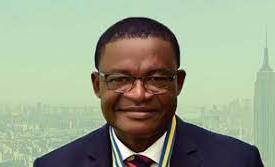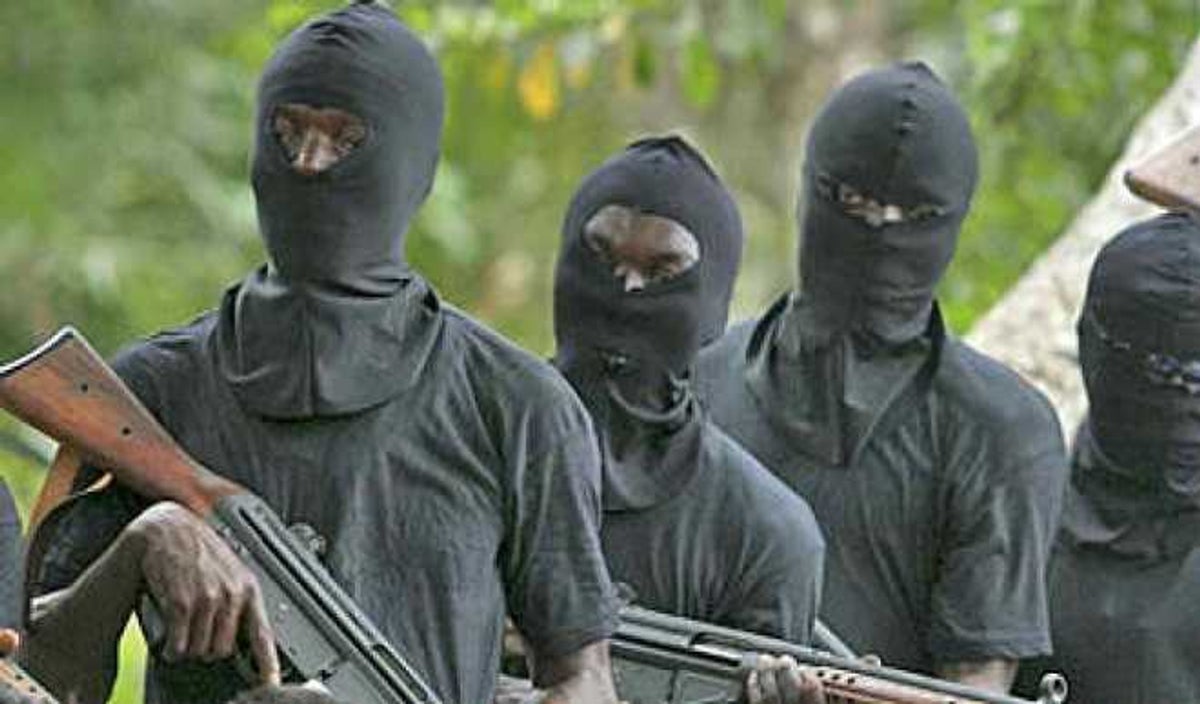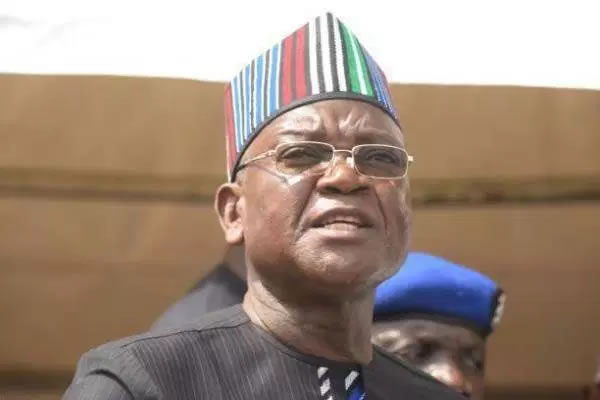OPINION
Owukpa: Benue Community Dancing With Death, Dearth amid Affluence
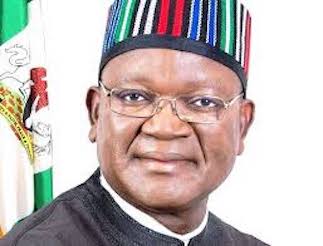
By Adoyi Ali
Owukpa is regarded as the most endowed community in Benue State with an amazing quantum of natural resources. Besides the abundance of coal deposit, the community is strategically situated as it ‘sits’ and rubs ‘shoulders’ with Enugu State.
Its location appears to be an edge for commercial reason. Its fertile soil is advantageous, except that its people are too poor to invest in agriculture. Besides the soil fertility, the community is surrounded by natural water bodies. Awube stream runs through Eja, Ikwo, Ugbugbu, Ubafu and other villages, while Adu stream runs through Ibagba, Ukwu, Ai’Odu and other communities. This is useful to both agriculture and construction of dams.Being a boundary community, Owukpa should have risen above the entire Ogbadibo Local Government Area which comprises 3 districts – Otukpa, Orokam and Owukpa. Ironically, the community has remained for several years without electricity, pipe-borne water and motorable roads.
A dying community
A few years ago, efforts were made at connecting the community to electricity. Today, the community has gone back to square-one. Wires have disappeared from the poles, transformers have been resold, and the few ones left are mere relics. Some poles are still standing, while others have given ways, and are now been used as local bridges across streams. Charging a phone in the community that still struggles with 2G network is a Herculean task. People pay generator owners to charge their phones before climbing on top of trees or looking for open fields to make calls. It’s that bad. The people have now resorted to visiting their popular shrines called Ekwanya to be able to fight vandals who sneak in at night to steal the electricity wires wasting away.
An anonymous said “Is it possible for us to have electricity ever in this community? It looks almost impossible to me. I doubt we have people representing us in government. What are they actually doing there?”
One will realize that he is heading to Owukpa after exiting Okpoga into the bumpy road that throws one up and down as though you are in a ship hit by the storm. The same is the case if one is coming through Orokam or Obollo-Eke. If you are a driver, car owner or visiting for the first time, it will be nightmarish. Somehow, you may get to your destination but not without checking with one or two mechanics at Obollo-Afor or Otukpa before returning to base. But the bumpy roads terminate at Ukwo-Owukpa and Obollo-Eke. The rest is snail-driving on roads without asphalts. It will take hours to get to your destination from Ukwo, a journey that should ordinarily take 10-15 minutes. This vividly captures the state of Owukpa roads. Meanwhile, a well constructed road terminates at its boundary with Obollo-Eke, Enugu State. One is tempted to say that the community is unfortunately under a spell to remain stagnant as several contracts awarded for the construction of motorable roads in the district were allegedly diverted by some politicians who believe that having food on their individual’s table was better than development on a larger scale.
Dancing with death
In the 21st century Nigeria, there exists a community without a single hospital or health centres. In the entire district, no single functional hospital is standing, no government hospital and no standard health centres are found around. Ironically, there is a functional mortuary where people dump dead bodies while waiting for elaborate burial ceremony. Avoidable deaths are common in Owukpa as people often die of minor illnesses, unless they are taken to far away Okpoga or Otukpa for treatment. For this reason, Owukpa people now take joy in burial thanksgiving than survival thanksgiving. In almost every home, a beautifully constructed grave with a catchy Epitaph remains conspicuous. The priority is completely lost in death, instead of living. Driving through the stony Anumachogwu, a friend asked, ‘’how come you have beautiful tombs in every home, and the houses are poorly built,’’ and I battled to give a struggling answer. It was obvious his question was not answered at the end of my struggle. If you want to be a successful businessman in Owukpa, own a mortuary.
A youth leader, Augustine Okpe, also known as Buzee explains the health situation in Owukpa. He said, “Ordinary headache kills people in Owukpa. We are living a dog’s life. Death means nothing to us at the moment. If there is an emergency, and we are to rush the person to far-away Okpoga, which road are we going to use? Where are the vehicles? We will usually tie the person to the rider of a motorcycle. The journey will take hours. At that critical time, it’s all about the person’s luck. Many people don’t make it to the hospital. There are no health centres for primary care. Many people had died in my hands following an emergency. Are we part of the Nigerian project?,’’ he asked.
A woman leader, who does not want her name in print lamented the health challenge in the community. According to her, other communities, especially the neigbouring Enugu communities have left Owukpa far behind. She said, ‘’we do almost everything at Obollo-Eke and Obollo-Afor, and we see things for ourselves. How come our own is different. I hear we have investors mining our coal at the moment, how has the community felt the impact. We will all come and join you in Abuja. Life is becoming unbearable. The rate of deaths in Owukpa cannot be compared to other communities. It’s very sad,’’ she said.
Accursed community
But there is a myth that Owukpa was cursed by the colonial masters who were allegedly manhandled by its extant community leaders during the advent of colonialism. This has, however, remained conjecture. In Okpokwu LGA axis is Okpoga which shares boundaries directly with Ai- Ifam in Owukpa. While Okpoga’s development is jet-like, Owukpa is moving at a snail speed.
Reacting to the myth that Owukpa was cursed, a clergy who also pleaded anonymous said he doubts if there was any curse dragging the community backward. He, however, said that the same fear pushed Owukpa to organize a liberation retreat of all denominations some years ago, and ‘’then it was prophesied that whatever curse(s) that might have existed and responsible for our backwardness had been broken. We can’t continue to say we are under a curse. We are our problem, just as we also blame the government for neglecting us.’’
The struggling future
A trip to one of the community Secondary Schools, Ibagba Owukpa, where mining activities are ongoing revealed an obvious sign of abandonment. The only community school cited in the area was distressed and the buildings are at the verge of collapsing. One wonders where students will return to when school resumes.
Similarly, another popular secondary school in Itabono, known as ICSS, that had produced many graduates from the community has been abandoned. Most of the buildings erected in the 80s are begging for renovation, and only a few classes could be seen still standing, threatening the future of young people who rely on the school to pursue their secondary education.
At Ipole Ugbugbu, the only Government Secondary School is almost being run without classrooms. Besides the facility challenge confronting the school, the complete absence of government teachers broke the heart of this writer. This writer was told that the only teachers in the school are the ones temporarily employed by some well-meaning individuals from the community who have been paying their salaries since the past 3 years.
Also, the only primary school in Ugbugbu has been completely abandoned as classrooms and the dilapidated buildings are now used to rare goats and chickens. We cannot establish exactly if there are still teachers in the school.
A people so divided
Shamefully, the people who are supposed to be united against these forces of backwardness are even more divided at the home front. Unfortunately, their disunity is dangerously along political and lineage lines. This has further compounded their difficult situation. Their positions on leadership have remained archaic, the worldviews smack of retrogression and their politics mostly characterized by bitterness.
Investigation has revealed that the community in the 21st century sees nothing wrong in adhering to extant cultures and traditions, and are intolerant to cultural dynamism. Take for instance, there is an ongoing leadership tussle in the community which stems from rotational and descent calculation. The leadership arrangement does not exactly give room to competence, oneness and progress. It dangerously divides the community along lineages. It encourages disunity and calculations are done based on ‘Itabone and Ehaje’ which are the two main clans in the community. Under these two clans are families believed to be children of a man who died several years ago (Amuche Onomo). For this reason, some school of thoughts are of the views that until the yoke of that sentiment is broken, development will be almost impossible as it’s common sense to say that ‘a house divided against itself cannot stand.’
Today, what would have become a common interest, now trends as individuals’ interest. What should have become an Owukpa interest, has become Itabono and Ehaje interests. The interest is further divided even among different families emerging from these clans. It’s the sad reality of their existence as a people. Currently, communities are in court over who takes over the mantle of Oche’Owukpa (The traditional chief). Though conflict is important in development, Owukpa’s own comes with so much bitterness that kills progress. We are even more divided on development matters; reference could be made to the current controversy on the mining activities in the community. Will Owukpa see light amid this turbulent wind? Only time can explain.
Ali Adoyi is a journalist and writes from Abuja and can be reached on Email: ali.adoyi@gmail.com, Instagram: official_aliadoyi, Facebook: Adoyi Abah Ali
OPINION
The Impact of Incessant Attacks in Farming Communities
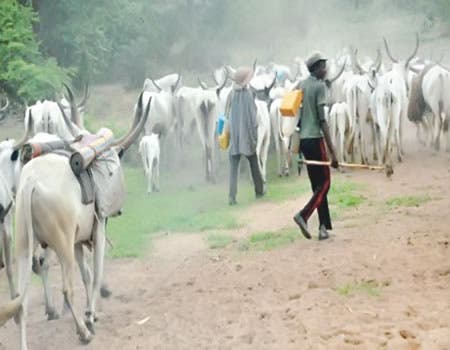
By Efe Omoghene
Rural communities across Nigeria’s Middle Belt and the North, which were once the major cities’ food pipeline, are now struggling to feed themselves. Thriving farmlands now bear the weight of fear and insecurity. With each disrupted planting season, the country edges closer to a more profound food security crisis, exacerbating what began as a regional instability into a nationwide emergency.
Incessant attacks have led to deaths and the displacement of farming communities in states that contribute significantly to Nigeria’s agricultural output. In June alone, attacks in Benue State, the “Food Basket of the Nation”, claimed dozens of lives and uprooted entire communities. While these incidents are heartbreaking, they are not new; we are only witnessing frequent recurrence. This troubling pattern of insecurity continues to force farmers off their land, disrupt food production, and weaken the nation’s ability to feed itself.Statistics from the Internal Displacement Monitoring Centre show that an estimated 295,000 internal displacements related to conflicts and violence were reported in Nigeria in 2024 alone. This includes the states of Benue, Borno, Katsina, Sokoto, Yobe and Zamfara. This is not just a crisis of safety; it’s a crisis of sustenance.For years, states such as Benue, Kaduna, Niger, Plateau, and Zamfara have been key food-producing regions, responsible for much of Nigeria’s grains, roots, fruits, and livestock. However, these areas are increasingly becoming places where violence has made farming a risky endeavour. Clashes between herders and farmers, banditry, terrorism, and communal violence have transformed fertile lands into contested zones. When farmers fear for their safety, they often cease farming or abandon their land altogether.The impact is already being felt. Markets are seeing rising prices on staple foods like yams, rice, and tomatoes. According to the National Bureau of Statistics, the cost of beans in the country in October 2024 was 282 per cent higher compared to the same period in 2023.The Food and Agriculture Organisation’s trend analysis for the north-eastern states indicates persistently high or increasing levels of food insecurity since 2018. The number of people needing urgent aid has increased by at least four million annually during the lean seasons since June 2020. Additionally, the north-west and parts of the north-central regions now exhibit critical levels of severe food insecurity and malnutrition, identifying them as major hunger hotspots requiring urgent attention from policymakers.A study revealed that 52.44 per cent of respondents in Niger State experienced food insecurity due to various insecurity activities such as blocking local routes, killings, kidnapping, and disruption of market functions. Insurgencies in the North Central states have also contributed to rising poverty levels among livestock farming households, with 83.84 per cent of livestock farmers participating in a study reporting significant declines in livestock production due to insurgency.If this pattern continues unchecked, the consequences could be long-term. More families will face hunger, and young people will leave rural areas for safety and work, draining the agricultural workforce in rural communities. Dependence on humanitarian aid will rise, and the burden on government resources will increase.This year, Nigeria is already projected to face a significant hunger gap, with up to 33 million people at risk of acute food insecurity in the lean season (between June and August), according to the FAO. This represents a seven million-person increase from the same period in 2023.Food security is not solely the government’s responsibility. It is a basic human right and our collective responsibility. Relying solely on farmers in distressed areas is not a very practical approach. Thankfully, the country is not in a hopeless situation.Across Nigeria, there are numerous examples of humanitarian and community-led peacebuilding efforts in action, and Sahel Consulting is proud to be part of this momentum. We are actively collaborating with local and international partners to develop practical solutions in the food value chain, empowering farmers and strengthening agribusinesses across Nigeria.Through our programs in dairy, seed, tuber, and policy systems, we are facilitating the increase in productivity, improving market access, and building capacity at the grassroots level. Whether it’s training dairy farmers in Adamawa, scaling clean seed yam innovations in Benue, advancing true potato seed systems in Plateau, or improving livestock nutrition through feed and fodder initiatives, our work is rooted in collaboration, innovation, and long-term impact.Similar efforts are taking shape through the work of the Gates Foundation. Gates Ag One, in partnership with the Institute for Agricultural Research at the Ahmadu Bello University, Kaduna State, is providing farmers with access to improved seed varieties for crops like beans and maize, engineered to resist pests and withstand drought. The foundation also funds projects to enhance livestock productivity and strengthen dairy value chains.State governments have also started implementing policies to support ranching to address farmer-herder conflicts and enhance agricultural productivity. Eleven states, including Anambra, Bauchi, Delta, Jigawa, Kano, Lagos, Niger, Nasarawa, Ondo, Plateau, and Zamfara, are either allocating land for ranches, developing policies, or committing to do so in the future. This initiative is part of a broader shift from open grazing to more modern, sustainable ranching practices. Farmer-herder dialogues, early warning systems, and conflict mediation groups have all demonstrated promise.Private organisations are also collaborating with ministries, agencies, and local partners to support resilient food systems through training, innovation, and market access.This is by no means the end of the story. While these efforts are commendable, their impact is not particularly noticeable vis-à-vis the insecurity, as they are implemented in isolation and on a relatively small scale. The real challenge, and opportunity, lies in collaboratively scaling initiatives that are working. For lasting change, we need to invest more in proven interventions. Government policies must be supported by robust implementation strategies, and private and development actors must be empowered to apply these models in more communities across the country.It is not enough to initiate these projects; we must establish frameworks that ensure they are sustainable, community-led, and responsive to the realities of the local communities. Clear safeguards and inclusive principles must be in place, especially in areas where displacement and land rights are already sensitive issues. Any solution must consider the voices of host communities and guarantee mutual benefit.Let’s focus on what’s already showing promise, such as improved seed distribution, inclusive value chain optimisations, and community-based peacebuilding. But let’s also be honest: we need to do much more, and we must do it together.The key is to make human security a foundation, not an afterthought, for agricultural development. Farmers need more than seeds and tools. They need to know that if they invest in their land, neither their lives nor their farms will be lost to violence; if they plant, they will live to harvest.Food security starts with human security. When fields are safe, they flourish. And when rural communities thrive, the whole country benefits—from Lagos to Maiduguri, Port Harcourt to Makurdi.Efe Omoghene is the strategic communications officer with Sahel ConsultingOPINION
The Task Before North Central Development Commission
By Bridget Tikyaa
The creation of the North Central Development Commission by President Bola Ahmed Tinubu has rekindled hope and set the tone for a new lease of development in the entire states of Benue, Nasarawa, Kwara, Kogi, Niger and Plateau, as well as the Federal Capital Territory (FCT).
These are states that have suffered long years of economic hardship, insecurity, displacement, disruption of basic services including schools and health infrastructure, and much more. With the inauguration of the board of the commission, whose headquarters is in Lafia, Nasarawa State, all is now set for the commission to articulate its programmes and swing into action. Already, the Federal Government has made provisions in the 2025 budget for the funds with which the commission will execute its programmes and projects.One of the key tasks the commission must plan for and address is the endemic rural poverty and economic hardship in the North central region. Over 75% of rural Nigerians live below the poverty line, with widespread economic stagnation, inflation, and insecurity contributing to severe economic hardship. The region’s dependence on oil and limited diversification have exacerbated poverty, with 30.9% of Nigerians living below the international extreme poverty line of $2.15 per day. This, no doubt, deserves frontal, timely and decisive action to contain.Another troubling aspect in the region is the level of insecurity and conflict being witnessed from Benue to Niger, Kwara and Kogi, Nasarawa and Plateau. The region is plagued by conflicts between farmers and herders, banditry, local militias particularly in Benue and Plateau states, resulting in loss of lives, displacement of communities, and decline in agricultural productivity. Insecurity has also limited access to cropland and restricted access to agricultural inputs. It is therefore imperative for the commission to interact with key stakeholders and devise a regional approach to the security challenges, including the establishment of a regional security, including support to existing security agencies to ensure a decisive and prompt response to the challenges. The safer the region, the more it takes the right steps to address other challenges.The North Central Development Commission should also have a blueprint to respond to the climate change and environmental issues in the region, from rising temperatures, erratic rainfall, flooding, and drought, to erosion and deforestation. Presently, these challenges have intensified existing vulnerabilities, disrupting education, health services, and community protection mechanisms. Climate change has also contributed to resource-based conflicts over land, water, and minerals as in Benue, Niger and Plateau states.One fundamental issue the commission must develop a Marshal plan for is the scourge of displacement and humanitarian crisis due to conflicts that had made over 300,000 homeless in just four states, including Benue and Nasarawa. This has resulted in increased vulnerability to gender-based violence, exploitation, and abuse, particularly among women and girls. This vulnerable population needs protection, security, emotional and economic support, and mental health evaluation, among others. The commission, therefore, has a huge task ahead of it, working in sync with the government of the six states, development partners and other stakeholders, to justify its creation by making a huge presence in the lives of the people of the region.The six states in the North Central also face limited access to basic services, including healthcare, education, and protection mechanisms. There are a number of areas where health facilities and schools have been destroyed or disrupted, thereby exacerbating the existing vulnerabilities. There are also the governance and leadership challenges due to weak governance structures, corruption, and poor management of the region’s natural resources. Over the years, the lack of effective leadership and accountability has hindered efforts to address poverty, insecurity, and climate change in the region and other parts of the country.These interconnected challenges, no doubt, require a comprehensive and multi-faceted approach to address, and the North Central Development Commission can greatly contribute to the solutions by vigorously promoting the region’s development, sustainable growth and stability.By Bridget Tikyaa is a Media Expert and writes form MakurdiOPINION
Olukoyede and the New EFCC
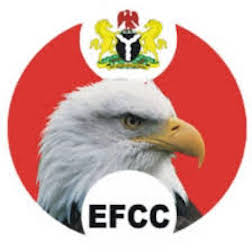
By Reuben Abati
Last Friday, 18 July, the incumbent Chairman of the Economic and Financial Crimes Commission (EFCC), Ola Olukoyede was in Lagos to hold a sensitisation programme on Naira Abuse, at the Colonades Hotel, Ikoyi, Lagos. What was reported in most newspapers and other platforms, was the EFCC czar’s disclosure that 18 currently serving Governors are under investigation by the EFCC, and that as soon as these Governors are out of office, the EFCC will pounce on them.
He hid the juicy part of the story by not disclosing names. Nigerians would have loved to know who these suspected thieving Governors are, at a time the people are groaning under the effect of petrol subsidy removal, high cost of living and the state governors are getting more money than they ever did.The EFCC has the powers to investigate sitting Governors, Deputy Governors, the President and the Vice President, but they are covered by Section 308 of the 1999 Constitution which grants them immunity from prosecution while in office.The intendment of Section 308, is to prevent this category of public officials from being distracted by a plethora of petitions that they may need to respond to. This is however not the case in every part of the world. In countries like South Africa, Israel, the United States, Brazil and France, not even the President is protected from prosecution.In March 2021, for example, former President of France, Nicolas Sarkozy was sentenced to a year in prison for corruption and influence peddling. In 1974, US President Gerald Ford lost his position because of clear, irrefutable evidence of wrong-doing in the Watergate scandal. In South Korea, sitting and former Presidents have been sent to jail, the latest being President Yoon Suk-Yeol, and before him, President Lee Myung-bak (MB).In Brazil, the inimitable President Luiz Lula da Silva spent time behind bars (2017-2019). The principle is that nobody is above the law, and that misdeeds at any level must not go unpunished. Nigerians would want a review/amendment of Section 308 of the 1999 Constitution to hold public office holders, all of them, regardless of position, accountable. It is most unfortunate that this is not a major issue in the ongoing discussions about constitutional amendment. It is unthinkable that any President, former or incumbent would be convicted in Nigeria. The immunity at that level is for life.Olukoyede had disclosed that the typical pattern for serving Governors is to run away before the expiration of their right to immunity. We are all witnesses to the fact that it is standard practice indeed for Governors to “japa” and not even wait to hand over to their successors. By simply serving notice, it is not impossible that the guilty among the Governors would be afraid and try to cover their tracks.The media won’t choose what will sell the news, and perhaps it is juicier to focus on the fact that 18 serving governors are being watched closely. The main substance of Olukoyede’s sensitisation programme however, was Naira Abuse, an event organised in “close concert with the Central Bank of Nigeria.” Before then, Olukoyede’s EFCC had set up a Task Force on Dollarisation and Naira Abuse to address “some of the practices that threaten the value of the currency”.Within the purview of Section 21 of the CBN Act, 2007, all acts that constitute Naira abuse are punishable for a term of not less than six months or a fine of not less than N50, 000 or both. These include the spraying of the Naira, dancing on it, marching and stepping on it, mutilation or defacement, and the selling or trading of Naira notes.This latter is a very common practice in Nigeria – the banks never give out new notes but every weekend at parties, naira merchants sell crisp national currency for profit, making us wonder whether there is a parallel Mint in the country where the Naira is printed.Ola Olukoyede, has made the protection of then naira, a major point of campaign. It is on record that with him as EFCC Chairman, many celebrities have been called to question for abusing the naira. There is the case of Idris Okuneye, aka Bobrisky, who purportedly spent six months at the Ikoyi Correctional Centre for spraying the Naira at a public gathering. Bobrisky pleaded guilty.Pascal Okechukwu, popularly known as Cubana Chief Priest was also arraigned in April 2024, but he pleaded not guilty. His own lawyers even went as far as questioning the jurisdiction of the court and the prosecutorial powers of the EFCC.Bobrisky was convicted, Cubana Chief Priest escaped with a fine of N10 million. Both men have not abused the Naira since then. Bobrisky is in fact so beaten and sober that he/she in fact took the safe option of lying low, disappearing from the social scene.Who would have thought that the famed “Mummy of Lagos” having gone to the college of imprisonment would calm down? As recently as May 2025, one Okoli Frank Emeka was sentenced to six months imprisonment for marching on the naira at Al Moruf Garden, Isheri Olofin, Lagos. The same month, one Kelly Okungbowa, aka Ebo Stone was arraigned before a Federal High Court sitting in Benin on a two-count charge of Naira abuse.In Kaduna, a TikToker and content creator, Muhammad Kabir Sa’ad was arrested and charged to court for mutilating the Naira. Kabir dared the EFCC in a video online to come and arrest him. They did. But the arrests were not limited to the average, struggling Nigeria.Earlier in January 2025, two sons of billionaire businessman, Razaq Okoya – Wahab and Raheem Okoya were invited for questioning for spraying bundles of N1, 000 Naira notes in a promotional clip for Raheem’s new song, “Credit Alert”.In May 2025, the EFCC also summoned the celebrated actress, Iyabo Ojo, self-styled Queen Mother, for the abuse of the Naira during her daughter, Priscilla’s wedding to the Tanzanian artiste, Juma Jux in Lagos. Iyabo Ojo was lucky, and she has not been seen anywhere spraying Naira notes again. Another actress, Oluwadarasimi Omoseyin was not so lucky.She was sentenced to six months imprisonment for spraying and tampering with the Naira at an event at Monarch Event Centre, Lekki, Lagos on January 28, 2023. In May 2025, the popular comedian and actor, Ayo Makun was also invited for questioning. He was so happy that the EFCC pardoned him, he issued a statement in which he said he had learnt his lessons.Despite all these cases, Nigerians continue to abuse the Naira contrary to Section 21(1) of the CBN Act, 2007. What the EFCC seems to have achieved is a drastic reduction in the obscene spraying and mutilation of the Naira that was the norm, and the effrontery of the partying crowd.The abuse started with the fun-loving people of the South West, the Yoruba who enjoy spraying the naira lavishly as a show of class and wealth but the behaviour soon spread to other parts of the country, particularly the East where the Igbo nouveaux riche have added spectacular colour to the spraying of the Naira and other currencies with the aid of a hand-held spraying gun, and accustomed sass. I once deplored this practice in a controversial article titled “Obi Cubana and the Oba Funeral”, (ThisDay, July 20, 2021).But neither this nor any other intervention has encouraged Nigerians to obey the law. Their standard excuse as articulated by Deyemi Okanlawon, an actor, is that the EFCC should focus more on other issues rather than the spraying of the Naira which is “a cultural problem”. It is perhaps for cultural reasons that many Nigerians have continued to spray the Naira, but they have found a way of taming the law.It is common these days to find celebrants carrying cartons or boxes into which money is deposited. Quite a number of thick-headed persons still spray and abuse the Naira at parties though, stubbornly insisting that they have the right to do what they wish with their money.Ola Olukoyede responded to this cultural argument as follows: “there is nothing cultural about spraying and stamping on the Naira or throwing wads of the currency in the air at social events. Nowhere in the world is such despicable practice tolerated.Nobody who works hard to earn money will go to social events and stamp on the currency. As a salary earner myself, it is unimaginable for me to go out and start throwing my hard-earned salary in the air!” The EFCC chair added that the Naira is a symbol “of our sovereignty and economic might” whose integrity must be protected.Its abuse is a punishable offence. He further cited the example of a former Governor, who after his tenure in office, celebrated his birthday in a hotel in London.The said Governor sprayed 50 and 10 bills in pounds sterling. The hotel manager having never seen such a thing in his life, called 911 and summoned the Metropolitan Police. The former Nigerian Governor was arrested and the police wanted to put him in an ambulance. According to the EFCC Chair: “The people – his friends, colleagues, and two governors – who went to London to celebrate with him had to intervene.They said the ex-Governor was not a mad man because the hotel manager thought he was mad.” It should be considered quite interesting that what is considered normal in Nigeria is interpreted as pure madness in other countries.Olukoyede has brought an evangelical fervour to the fight against economic and financial crimes. He is, by the way, a Pastor in a Pentecostal church. What he has achieved is to remind his audience and the larger Nigerian community that ignorance of the law is not an excuse, and that no one is above the law. He also drew attention to what the law says.He is a lawyer. In attendance at the Colonades Hotel event were musicians, actors, event organizers, influencers, content creators, hospitality stakeholders, financial sector representatives and the general public. Some of the celebrities in attendance included King Alabi Pasuma, the Fuji artiste, MI, Ill Bliss Goretti, Osas Ighodaro, Pretty Mike, Terry Apala, Mercy Aigbe, Kazim Adeoti, Funke Bucknor-Obruthe, Anto Lecky and others.Musicians and event organizers depend on the spraying of Naira for extra patronage and encouragement. What is new is the EFCC’s attempt to invest heavily in public sensitization. The agency also has an anti-corruption radio station, EFCC 97.3 FM in Abuja, whose broadcast is live streamed through the EFCC website, www.efcc.gov.ng. Ola Olukoyede rose through the ranks within the EFCC to get to the apex position, but other Chairmen before him did not bother as much about public sensitisation.Section 6(p) of the EFCC Establishment Act, 2004 as amended, states among the functions of the agency: “carrying out and sustaining rigorous public and enlightenment campaign against economic and financial crimes within and outside Nigeria.” Olukoyede is giving effect to this to a higher degree like no one else before him.Past Chairmen have been accused of allowing the EFCC to be used as a tool of political intimidation, and witch-hunt as has been robustly evidenced in two books by Muhammed Bello Adoke viz: Burden of Service: Reminiscences of Nigeria’s Former Attorney General (2019) and OPL 245: The Inside Story of the $1.3 bn Nigerian Oil Block (2025).This is not the case with Ola Olukoyede. But he has also had his own share of criticisms as in for example, Steve Osuji’s “EFCC’s alarming impunity” (July 10, 2025) which has attracted a rejoinder in a piece titled “Campaign of calumny against EFCC” (Punch, July 21, 2025) by Dele Oyewale, the EFCC spokesperson.Last Friday, the EFCC Chair painted a picture of the achievements of the EFCC under his watch, denying any charge of impunity. To be fair, there has been relatively less hysteria in his campaign against corruption. He regards the battle as a collective responsibility. He wants an all-of society-approach. It will be recalled that he was the first EFCC Chairman to admit publicly that there is corruption even within the EFCC.In 2024, Olukoyede sacked 27 of his own men for misconduct and fraudulent activities. He also ordered a probe into an alleged fraud of $400, 000 linked to a sectional Head of the EFCC. But perhaps what is more remarkable about the EFCC these days, is that there have been no serious allegations that the agency is being used for political vendetta.The credit for this belongs to Olukoyede, and President Bola Ahmed Tinubu who has given him the free hand to do his job, the best way he understands it. But will he win the battle against Naira abuse? The best that he can hope for is limited success. The madness of Naira plunking seems to be a genetic affliction among Nigerians. He would be better off finding a cure for it. He is doing well.Reuben Abati, a former presidential spokesperson, writes from Lagos.
